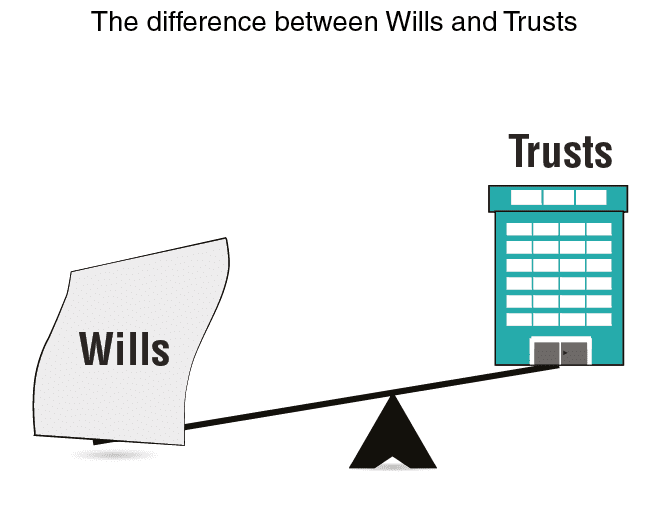The Difference Between Wills and Trusts
A will and a trust are often considered together by financial planners, but these are two separate and very distinct types of documents. Whereas wills and trusts are both useful instruments in building your wealth and making it go on during any illnesses you may suffer and after you die, they also have a lot of differences from one another. Knowing what these differences are and how they work together in your estate is a valuable part of the process of building a solid and long-term estate.
A will is a document that states what you desire to happen with your holdings, including your accounts and paying your bills, if you are unable to do so. As a general rule, this is invoked during either a period of serious illness or a coma on your part or upon your death. While a traditional will covers what happens after you die, often a person needs to have a backup plan in the case of a serious illness or injury. For these types of situations, you want to have a living will to complement your standard will. When you have a will, it will determine how most of your assets are distributed to your heirs and other beneficiaries.
A trust is an entirely different matter. As a general rule, a trust is a legally separate entity from you. Some very wealthy people establish trusts that protect what they have by making them the “trustee” instead of the “owner” of these assets. A trust allows you to determine how an asset will be distributed, and it can even allow you to control how it will be run. If you have a business, an expensive home or other larger assets, a trust may well be a useful addition to your will and other aspects of your estate. There are many different kinds of trusts, which afford different authority to the trust’s grantor (the person who establishes the trust), the trustee (the manager of the trust) and the beneficiary (the person who technically owns the assets and could benefit from having them one day). Different trusts also have different tax and liability attributes.
Keep in mind that a will and a trust work together. Neither of these two components of your estate can replace the other one, and in some cases you may not need to erect any trusts. However, if you own anything of value you need a will. If you have dependents, you need a will. Even if you don’t have either of these in your life, you need to have a living will to make sure that your care (including whether or not to “pull the plug”) is based upon your individual wishes.










